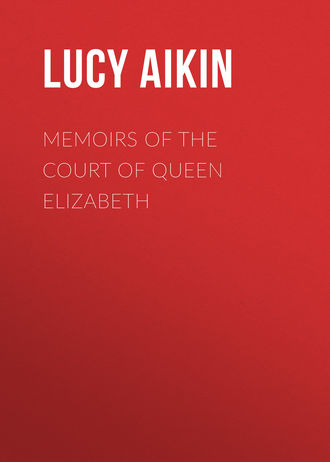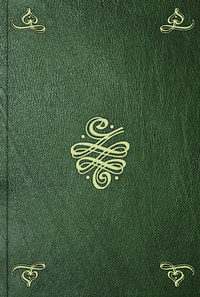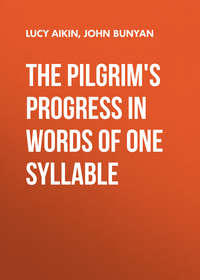 полная версия
полная версияMemoirs of the Court of Queen Elizabeth
The prosecution was conducted with all the iniquity which the corrupt practice of that age admitted. Not only was the prisoner debarred the assistance of counsel on his trial, he was even refused the privilege of calling a single witness in his favor. He defended himself however under all these disadvantages, with surprising skill, boldness and presence of mind; and he retorted with becoming spirit the brutal taunts of the crown lawyers and judges, who disgraced themselves on the occasion by all the excesses of an unprincipled servility. Fortunately for Throgmorton, the additional clauses to the treason laws added under Henry VIII. had been abolished under his successor and were not yet re-enacted. Only the clear and equitable statute of Edward III. remained therefore in force; and the lawyers were reduced to endeavour at such an explanation of it as should comprehend a kind of constructive treason. "If," said they, "it be proved that the prisoner was connected with Wyat, and of his counsel, the overt acts of Wyat are to be taken as his, and visited accordingly." But besides that no participation with Wyat after he had taken up arms, was proved upon Throgmorton, the jury were moved by his solemn protest against so unwarrantable a principle as that the overt acts of one man might be charged as overt acts upon another. They acquitted him therefore with little hesitation, to the inexpressible disappointment and indignation of the queen and her ministers, who then possessed the power of making their displeasure on such an occasion deeply felt. The jury were immediately committed to custody, and eight of them, who refused to confess themselves in fault, were further imprisoned for several months and heavily fined.
The acquitted person himself, in defiance of all law and justice, was remanded to the Tower, and did not regain his liberty till the commencement of the following year, when the intercession of king Philip obtained the liberation of almost all the prisoners there detained.
Throgmorton, like all the others called in question for the late insurrections, was closely questioned respecting Elizabeth and the earl of Devon; "and very fain," we are told, "the privy-councillors employed in this work would have got out of him something against them. For when at Throgmorton's trial, his writing containing his confession was read in open court, he prayed the queen's serjeant that was reading it to read further, 'that hereafter,' said he, 'whatsoever become of me, my words may not be perverted and abused to the hurt of some others, and especially against the great personages of whom I have been sundry times, as appears by my answers, examined. For I perceive the net was not cast only for little fishes but for great ones26."
This generous concern for the safety of Elizabeth in the midst of his own perils appears not to have been lost upon her; and under the ensuing reign we shall have the satisfaction of seeing the abilities of sir Nicholas displayed in other scenes and under happier auspices.
All manifestations of popular favor towards those whom the court had proscribed and sought to ruin, were at this juncture visited with the extreme of arbitrary severity. Two merchants of London, for words injurious to the queen, but principally for having affirmed that Wyat at his death had cleared the lady Elizabeth and the earl of Devonshire, were set in the pillory, to which their ears were fastened with large nails.
It was in fact an object of great importance to the catholic party to keep up the opinion, so industriously inculcated, of the princess being implicated in the late disturbances; since it was only on this false pretext that she could be detained close prisoner in the Tower while a fatal stroke was aimed against her rights and interests.
Gardiner, now chancellor and prime minister, the most inveterate of Elizabeth's enemies and the most devoted partisan of the Spanish interest, thinking that all was subdued to the wishes of the court, brought before the new parliament a bill for declaring the princess illegitimate and incapable of succeeding:—it was indignantly rejected, however, by a great majority; but the failure only admonished him to renew the attack in a more indirect and covert manner. Accordingly, the articles of the marriage treaty between Mary and the prince of Spain, artfully drawn with great seeming advantage to England, had no sooner received the assent of the two houses, than he proposed a law for conferring upon the queen the same power enjoyed by her father; that of naming a successor. But neither could this be obtained from a house of commons attached for the most part to the protestant cause and the person of the rightful heir, and justly apprehensive of the extinction of their few remaining privileges under the yoke of a detested foreign tyrant. Nobody doubted that it was the purpose of the queen, in default of immediate issue of her own, to bequeath the crown to her husband, whose descent from a daughter of John of Gaunt had been already much insisted on by his adherents. The bill was therefore thrown out; and the alarm excited by its introduction had caused the house to pass several spirited resolutions, one of which declared that her majesty should reign as a sole queen without any participation of her authority, while the rest guarded in various points against the anticipated encroachments of Philip, when Mary thought good to put a stop to the further discussion of the subject by a prorogation of parliament.
After these manifold disappointments, the court party was compelled to give up, with whatever reluctance, its deep-laid plots against the unoffending princess. Her own prudence had protected her life; and the independent spirit of a house of commons conscious of speaking the sense of the nation guarantied her succession. One only resource remained to Gardiner and his faction:—they judged that a long-continued absence, while it gradually loosened her hold upon the affections of the people, would afford many facilities for injuring or supplanting her; and it was determined soon to provide for her a kind of honorable banishment.
The confinement of the princess in the Tower had purposely been rendered as irksome and comfortless as possible. It was not till after a month's close imprisonment, by which her health had suffered severely, that she obtained, after many difficulties, permission to walk in the royal apartments; and this under the constant inspection of the constable of the Tower and the lord-chamberlain, with the attendance of three of the queen's women; the windows also being shut, and she not permitted to look out at them. Afterwards she had liberty to walk in a small garden, the gates and doors being carefully closed; and the prisoners whose rooms looked into it being at such times closely watched by their keepers, to prevent the interchange of any word or sign with the princess. Even a child of five years old belonging to some inferior officer in the Tower, who was wont to cheer her by his daily visits, and to bring her flowers, was suspected of being employed as a messenger between her and the earl of Devonshire; and notwithstanding the innocent simplicity of his answers to the lord-chamberlain by whom he was strictly examined, was ordered to visit her no more. The next day the child peeped in through a hole of the door as she walked in the garden, crying out, "Mistress, I can bring you no more flowers!" for which, it seems, his father was severely chidden and ordered to keep his boy out of the way.
From the beginning of her imprisonment orders had been given that the princess should have mass regularly said in her apartment. It is probable that Elizabeth did not feel any great repugnance to this rite:—however this might be, she at least expressed none; and by this compliance deprived her sister of all pretext for persecuting her on a religious ground. But some of her household were found less submissive on this head, and she had the mortification of seeing Mrs. Sands, one of her ladies, carried forcibly away from her under an accusation of heresy and her place supplied by another.
All these severities failed however of their intended effect: neither sufferings nor menaces could bring the princess to acknowledge herself guilty of offending even in thought against her sovereign and sister; and as the dying asseverations of Wyat had fully acquitted her in the eyes of the country, it became evident that her detention in the Tower could not much longer be persisted in. Yet the habitual jealousy of Mary's government, and the apparent danger of furnishing a head to the protestants rendered desperate by her cruelties, forbade the entire liberation of the princess; and it was resolved to adopt as a middle course the expedient sanctioned by many examples in that age, of committing her to the care of certain persons who should be answerable for her safe keeping, either in their own houses, or at some one of the royal seats. Lord Williams of Thame, and sir Henry Beddingfield captain of the guard, were accordingly joined in commission for the execution of this delicate and important trust.
The unfortunate prisoner conceived neither hope nor comfort from this approaching change in her situation, nor probably was it designed that she should; for intimidation seems still to have formed an essential feature in the policy of her relentless enemies. Sir Henry Beddingfield entered the Tower at the head of a hundred of his men; and Elizabeth, struck with the unexpected sight, could not forbear inquiring with dismay, whether the lady Jane's scaffold were removed? On being informed that it was, she received some comfort, but this was not of long duration; for soon a frightful rumor reached her, that she was to be carried away by this captain and his soldiers no one knew whither. She sent immediately for lord Chandos, constable of the Tower, whose humanity and courtesy had led him to soften as much as possible the hardships of her situation, though at the hazard of incurring the indignation of the court; and closely questioning him, he at length plainly told her that there was no help for it, orders were given, and she must be consigned to Beddingfield's care to be carried, as he believed, to Woodstock. Anxious and alarmed, she now asked of her attendants what kind of man this Beddingfield was; and whether, if the murdering of her were secretly committed to him, his conscience would allow him to see it executed? None about her could give a satisfactory answer, for he was a stranger to them all; but they bade her trust in God that such wickedness should not be perpetrated against her.
At length, on May 19th, after a close imprisonment of three months, she was brought out of the Tower under the conduct of Beddingfield and his troop; and on the evening of the same day found herself at Richmond Palace, where her sister then kept her court. She was still treated in all respects like a captive: the manners of Beddingfield were harsh and insolent; and such terror did she conceive from the appearances around her, that sending for her gentleman-usher, she desired him and the rest of her officers to pray for her; "For this night," said she, "I think to die." The gentleman, much affected by her distress, encouraged her as well as he was able: then going down to lord Williams, who was walking with Beddingfield, he called him aside and implored him to tell him sincerely, whether any mischief were designed against his mistress that night or no; "that he and his men might take such part as God should please to appoint." "For certainly," added this faithful servant, "we will rather die than she should secretly and innocently miscarry." "Marry, God forbid," answered Williams, "that any such wicked purpose should be wrought; and rather than it should be so, I with my men are ready to die at her feet also."
In the midst of her gloomy apprehensions, the princess was surprised by an offer from the highest quarter, of immediate liberty on condition of her accepting the hand of the duke of Savoy in marriage.
Oppressed, persecuted, and a prisoner, sequestered from every friend and counsellor, guarded day and night by soldiers, and in hourly dread of some attempt upon her life, it must have been confidently expected that the young princess would embrace as a most joyful and fortunate deliverance this unhoped-for proposal; and by few women, certainly, under all the circumstances, would such expectations have been frustrated. But the firm mind of Elizabeth was not thus to be shaken, nor her penetration deceived. She saw that it was banishment which was held out to her in the guise of marriage; she knew that it was her reversion of an independent English crown which she was required to barter for the matrimonial coronet of a foreign dukedom; and she felt the proposal as what in truth it was;—an injury in disguise. Fortunately for herself and her country, she had the magnanimity to disdain the purchase of present ease and safety at a price so disproportionate; and returning to the overture a modest but decided negative, she prepared herself to endure with patience and resolution the worst that her enraged and baffled enemies might dare against her.
No sooner was her refusal of the offered marriage made known, than orders were given for her immediate removal into Oxfordshire. On crossing the river at Richmond on this melancholy journey, she descried on the other side "certain of her poor servants," who had been restrained from giving their attendance during her imprisonment, and were anxiously desirous of seeing her again. "Go to them," said she to one of her men, "and say these words from me, Tanquam ovis" (Like a sheep to the slaughter).
As she travelled on horseback the journey occupied four days, and the slowness of her progress gave opportunity for some striking displays of popular feeling. In one place, numbers of people were seen standing by the way-side who presented to her various little gifts; for which Beddingfield did not scruple, in his anger, to call them traitors and rebels. The bells were every where rung as she passed through the villages, in token of joy for her liberation; but the people were soon admonished that she was still a prisoner and in disgrace, by the orders of Beddingfield to set the ringers in the stocks.
On the third evening she arrived at Ricot, the house of lord Williams, where its owner, gracefully sinking the character of a watchful superintendant in that of a host who felt himself honored by her visit, introduced her to a large circle of nobility and gentry whom he had invited to bid her welcome. The severe or suspicious temper of Beddingfield took violent umbrage at the sight of such an assemblage: he caused his soldiers to keep strict watch; insisted that none of the guests should be permitted to pass the night in the house; and asked lord Williams if he were aware of the consequences of thus entertaining the queen's prisoner? But he made answer, that he well knew what he did, and that "her grace might and should in his house be merry." Intelligence however had no sooner reached the court of the reception afforded to the princess at Ricot, than directions arrived for her immediate removal to Woodstock. Here, under the harsher inspection of Beddingfield, she found herself once more a prisoner. No visitant was permitted to approach; the doors were closed upon her as in the Tower; and a military guard again kept watch around the walls both day and night.
We possess many particulars relative to the captivity of Elizabeth at Woodstock. In some of them we may recognise that spirit of exaggeration which the anxious sympathy excited by her sufferings at the time, and the unbounded adulation paid to her afterwards, were certain to produce; others bear all the characters of truth and nature.
It is certain that her present residence, though less painful and especially less opprobrious than imprisonment in the Tower, was yet a state of rigorous constraint and jealous inspection, in which she was haunted with cares and fears which robbed her youth of its bloom and vivacity, and her constitution of its vigor. On June 8th such was the state of her health that two physicians were sent from the court who remained for several days in attendance on her. On their return, they performed for their patient the friendly office of making a favorable report of her behaviour and of the dutiful humility of her sentiments towards her majesty, which was received, we are told, with more complacency by Mary than by her bishops. Soon after, she was advised by some friend to make her peace with the queen by submissions and acknowledgements, which, with her usual constancy, she absolutely refused, though apparently the only terms on which she could hope for liberty.
Under such circumstances we may give easy belief to the touching anecdote, that "she, hearing upon a time out of her garden at Woodstock, a milkmaid singing pleasantly, wished herself a milkmaid too; saying that her case was better, and her life merrier than hers."
The instances related of the severity and insolence of sir Henry Beddingfield are to be received with more distrust. We are told, that observing a chair of state prepared for the princess in an upper chamber at lord Williams's house, he seized upon it for himself and insolently ordered his boots to be pulled off in that apartment. Yet we learn from the same authority that afterwards at Woodstock, when she seems to have been in his sole custody, Elizabeth having called him her jailor, on observing him lock the gate of the garden while she was walking in it, he fell on his knees and entreated her grace not to give him that name, for he was appointed to be one of her officers. It has also been asserted, that on her accession to the throne she dismissed him from her presence with the speech, that she prayed God to forgive him, as she did, and that when she had a prisoner whom she would have straitly kept and hardly used, she would send for him. But if she ever used to him words like these, it must have been in jest; for it is known from the best authority, that Beddingfield was frequently at the court of Elizabeth, and that she once visited him on a progress. If there is any truth in the stories told of persons of suspicious appearance lurking about the walls of the palace, who sought to gain admittance for the purpose of taking away her life, the exact vigilance of her keeper, by which all access was barred, might more deserve her thanks than her reproaches.
During the period that the princess was thus industriously secluded from conversation with any but the few attendants who had been allowed to remain about her person, her correspondence was not less watchfully restricted. We are told, that when, after urgent application to the council, she had at length been permitted to write to the queen, Beddingfield looked over her as she wrote, took the paper into his own keeping when she paused, and brought it back to her when she chose to resume her task.
Yet could not his utmost precaution entirely cut off her communications with the large and zealous party who rested upon her all their hopes of better times for themselves or for the country. Through the medium of a visitor to one of her ladies, she received the satisfactory assurance that none of the prisoners for Wyat's business had been brought to utter any thing by which she could be endangered. Perhaps it was with immediate reference to this intelligence that she wrote with a diamond on her window the homely but expressive distich,
"Much suspected by meNothing proved can be,Quoth Elizabeth prisoner."But these secret intelligencers were not always fortunate enough to escape detection, of which the consequences were rendered very grievous through the arbitrary severity of Mary's government, and the peculiar malice exercised by Gardiner against the adherents of the princess.
Sir John Harrington, son to the gentleman of the same name formerly mentioned as a follower of admiral Seymour, thus, in his Brief View of the Church, sums up the character of this celebrated bishop of Winchester, with reference to this part of his conduct.
"Lastly, the plots he laid to entrap the lady Elizabeth, and his terrible hard usage of all her followers, I cannot yet scarce think of with charity, nor write of with patience. My father, for only carrying a letter to the lady Elizabeth, and professing to wish her well, he kept in the Tower twelve months, and made him spend a thousand pounds ere he could be free of that trouble. My mother, that then served the lady Elizabeth, he caused to be sequestered from her as an heretic, insomuch that her own father durst not take her into his house, but she was glad to sojourn with one Mr. Topcliff; so as I may say in some sort, this bishop persecuted me before I was born."
In the twelfth month of his imprisonment, this unfortunate Harrington, having previously sent to the bishop many letters and petitions for liberty without effect, had the courage to address to him a "Sonnet," which his son has cited as "no ill verse for those unrefined times;" a modest commendation of lines so spirited, which the taste of the more modern reader, however fastidious, need not hesitate to confirm.
To Bishop Gardiner.
1"At least withdraw your cruelty,Or force the time to work your will;It is too much extremityTo keep me pent in prison still,Free from all fault, void of all cause,Without all right, against all laws.How can you do more cruel spiteThan proffer wrong and promise right?Nor can accuse, nor will acquight.2Eleven months past and longer spaceI have abode your dev'lish drifts,While you have sought both man and place,And set your snares, with all your shifts,The faultless foot to wrap in wileWith any guilt, by any guile:And now you see that will not be,How can you thus for shame agreeTo keep him bound you should set free?3Your chance was once as mine is now,To keep this hold against your will,And then you sware you well know how,Though now you swerve, I know how ill.But thus this world his course doth pass,The priest forgets a clerk he was,And you that have cried justice still,And now have justice at your will,Wrest justice wrong against all skill.4But why do I thus coldly plainAs if it were my cause alone?When cause doth each man so constrainAs England through hath cause to moan,To see your bloody search of suchAs all the earth can no way touch.And better were that all your kindLike hounds in hell with shame were shrined,Than you add might unto your mind.5But as the stone that strikes the wallSometimes bounds back on th' hurler's head,So your foul fetch, to your foul fallMay turn, and 'noy the breast that bred.And then, such measure as you gaveOf right and justice look to have,If good or ill, if short or long;If false or true, if right or wrong;And thus, till then, I end my song."Such were the trials and sufferings which exercised the fortitude of Elizabeth and her faithful followers during her deplorable abode at Woodstock. Mary, meanwhile, was rapt in fond anticipations of the felicity of her married life with a prince for whom, on the sight of his picture, she is said to have conceived the most violent passion. The more strongly her people expressed their aversion and dread of the Spanish match, the more vehemently did she show herself bent on its conclusion; and having succeeded in suppressing by force the formidable rebellion to which the first report of such an union had given birth, she judged it unnecessary to employ any of those arts of popularity to which her disposition was naturally adverse, for conciliating to herself or her destined spouse the good will of her subjects. After many delays which severely tried her temper, the arrival of the prince of Spain at Southampton was announced to the expecting queen, who went as far as Winchester to meet him, in which city Gardiner blessed their nuptials on July the 27th, 1554.
The royal pair passed in state through London a few days after, and the city exhibited by command the outward tokens of rejoicing customary in that age. Bonfires were kindled in the open places, tables spread in the streets at which all passers-by might freely regale themselves with liquor: every parish sent forth its procession singing Te Deum; the fine cross in Cheapside was beautified and newly gilt, and pageants were set up in the principal streets. But there was little gladness of heart among the people; and one of these festal devices gave occasion to a manifestation of the dispositions of the court respecting religion, which filled the citizens with grief and horror. A large picture had been hung over the conduit in Gracechurch street representing the nine Worthies, and among them king Henry VIII. made his appearance, according to former draughts of him, holding in his hand a book on which was inscribed "Verbum Dei." This accompaniment gave so much offence, that Gardiner sent for the painter; and after chiding him severely, ordered that a pair of gloves should be substituted for the bible.





